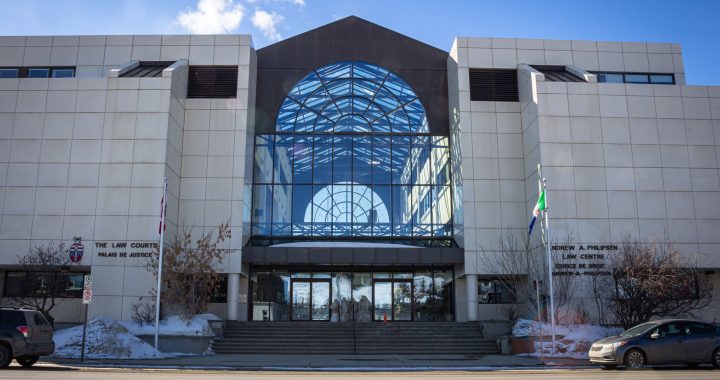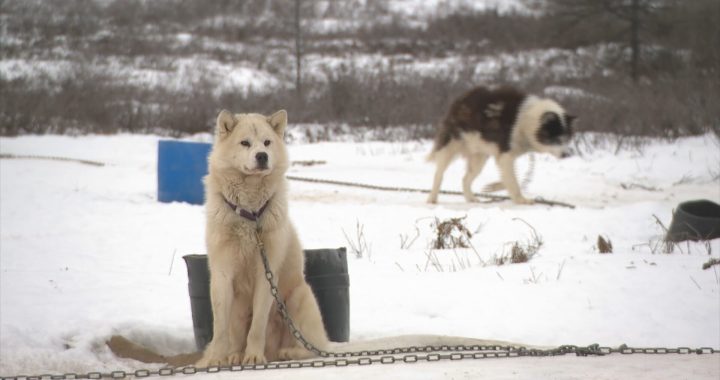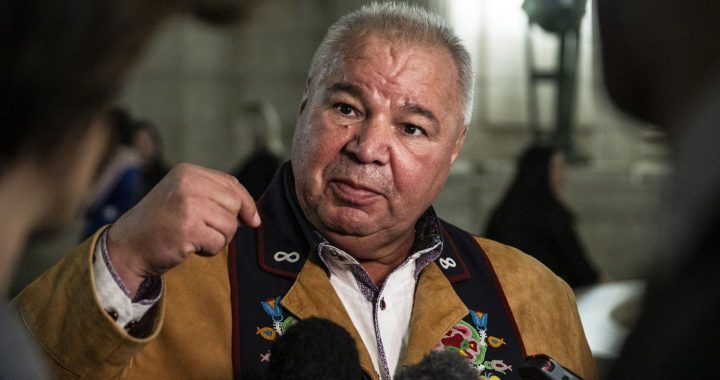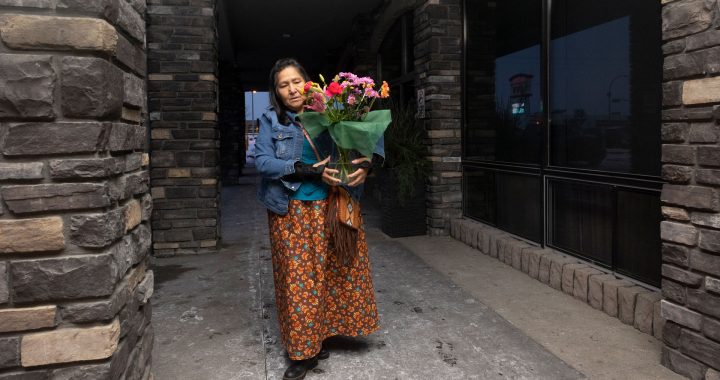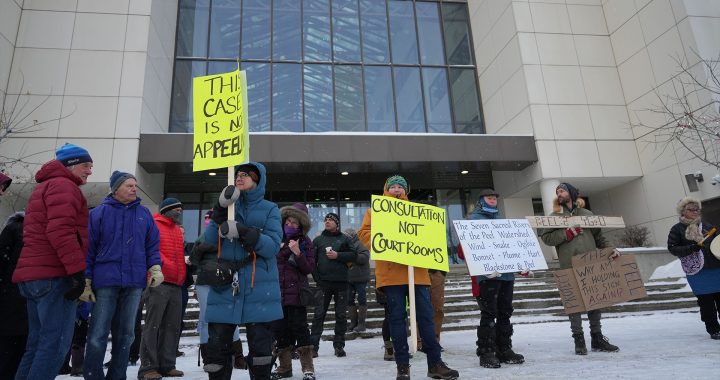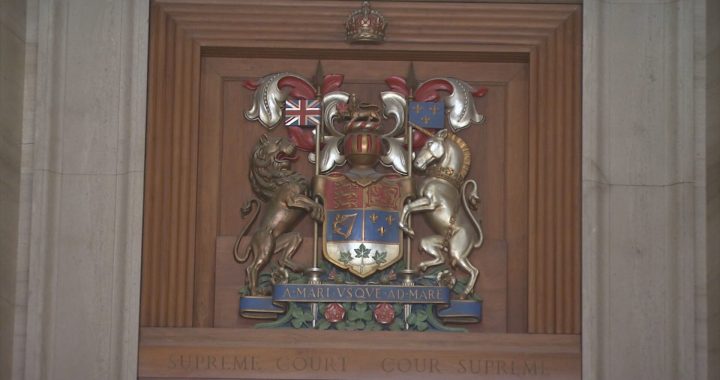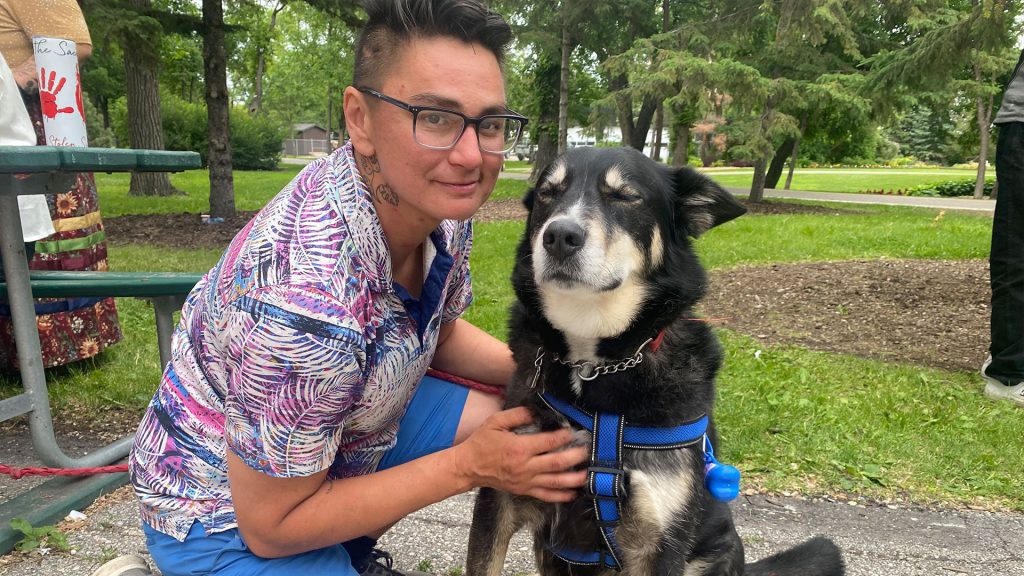
Casey Abraham, whose mother was murdered by B.C. serial killer Robert Pickton, with his dog, Devo. Photo: Kahtleen Martens/APTN News
Warning: This story shares graphic details of murder trials. Please read with care.
Casey Abraham can say he has sat through the criminal trials of two serial killers.
The first, Robert Pickton, who killed his mother, Sharon Abraham of Sagkeeng First Nation in Manitoba.
The second, Jeremy Skibicki, who murdered his friend’s sister, Marcedes Myran of Long Plain First Nation, also in Manitoba.
“Never in my life did I think that I would be involved in another serial killer situation,” said Casey, 35, after the Skibicki trial wrapped up in Winnipeg on June 10.
“It’s not a pattern that I hope keeps up.”
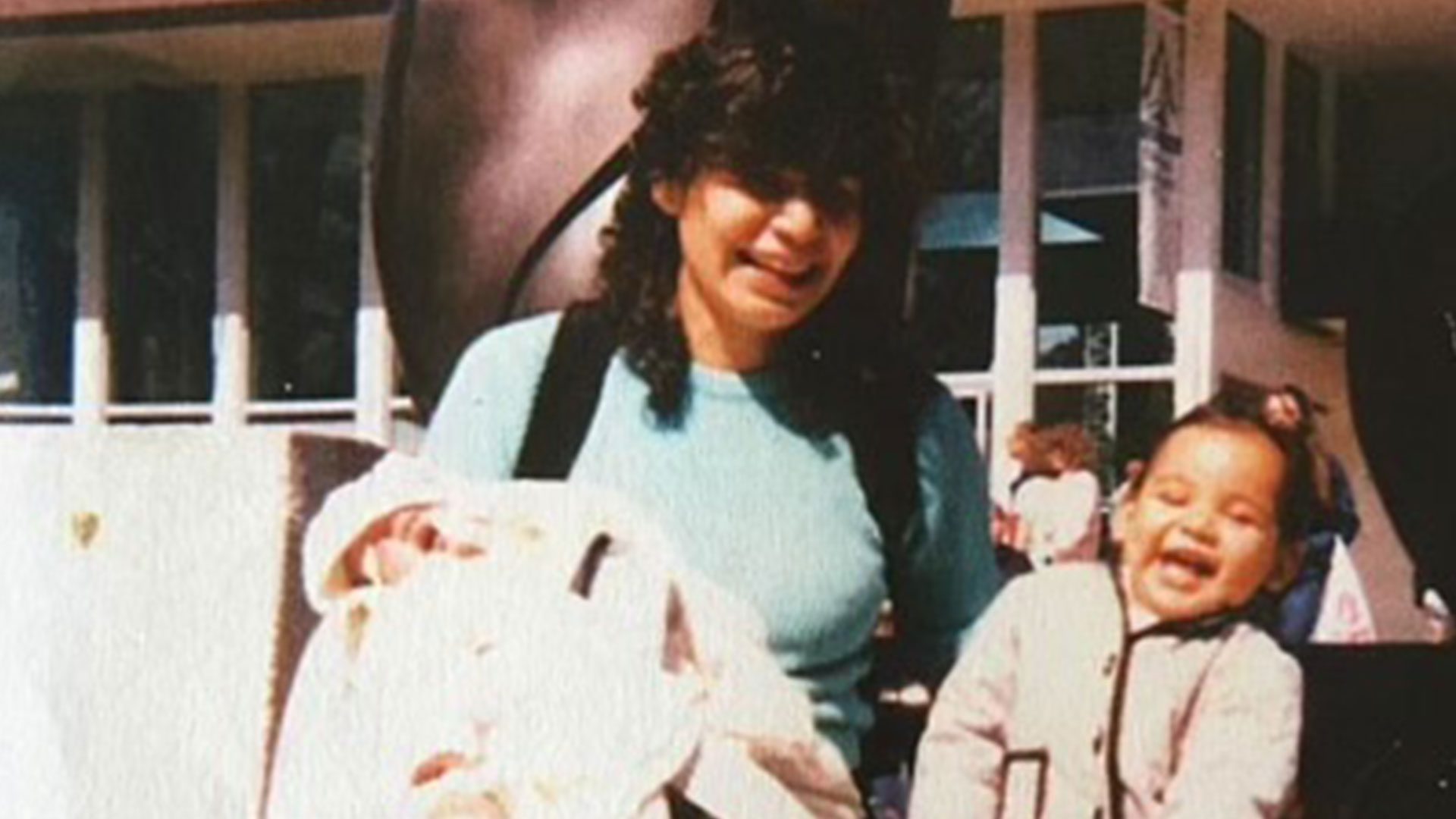
In 2004, Casey’s world shattered when homicide investigators from Vancouver, along with provincial victim services workers, knocked on his foster family’s door outside Winnipeg.
“My mind started reeling because a week before that, I was in high school, we were all passing around the (news)paper (stories) about Pickton and were all discussing this … something that I had no idea my mom was involved in.”
His mother, who was living in New Westminster, B.C., had been reported missing by her roommate.
Police told her eldest children they discovered Sharon’s DNA – along with the DNA or remains of 32 other women, many of whom were Indigenous – on Pickton’s pig farm in Port Coquitlam outside Vancouver.
“My sister crumpled in my (foster) mother’s arms,” recalls Casey, ” … I remember getting very, very angry that my sister was so upset.”
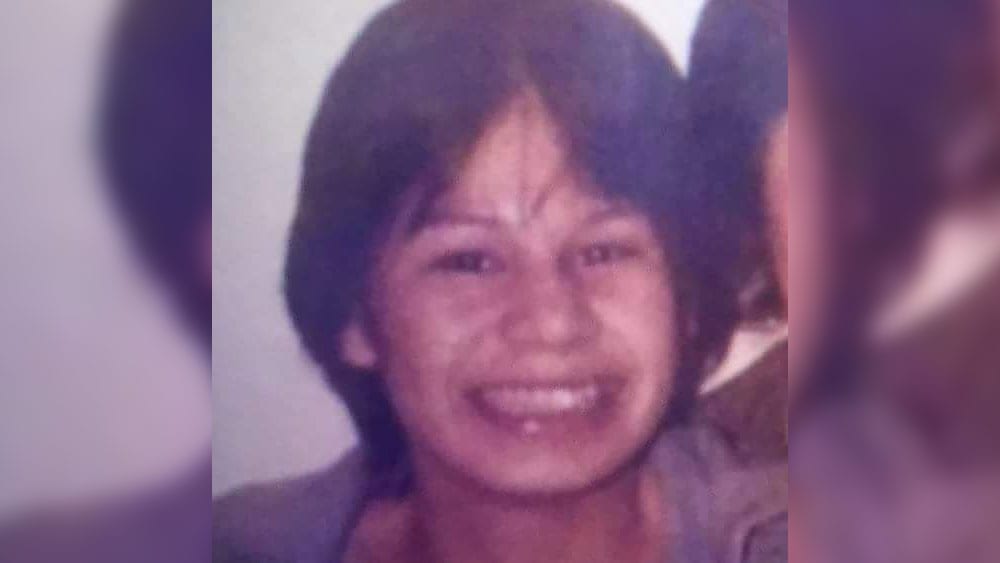
Sharon, who was 39, had returned to B.C. after losing custody of her five children in Manitoba, said Casey.
“We were in and out of foster care our entire lives,” Casey tells APTN News. “They made her jump through a lot of hoops in order to get us back. After a while it just becomes too painful or too hurtful.”
Statistics show children from First Nations families make up the bulk of Manitoba’s child-welfare cases. Advocates say when mothers lose their children to the system they are often thrown into addiction, poverty and onto the street.
Mental health issues and drugs made his mom even more vulnerable, adds Casey.
“The stories that I hear from people who knew her (are that) she was a very loving mom. That’s all she wanted was to have us all together.”

The victims of Pickton and Skibicki, who preyed on homeless First Nations women in Winnipeg, are part of the ongoing crisis of missing and murdered Indigenous women and girls (MMIWG) in Canada.
“I was in Grade 9 and (police) asked us to (give) a blood sample,” says Casey. “Basically, (they said), ‘We have an idea that your mom was on his farm.’ They just wanted to match up some of the DNA.
“They kind of told us, ‘We’re pretty sure he’s responsible for the death of your mother.’”
There wasn’t enough evidence to charge Pickton, who had bragged about killing 49 women, with Sharon’s slaying. But he was convicted of six counts of second-degree murder in 2007.
The trauma of losing his mother led Casey into his own battle with addiction that he says he’s beaten for now.
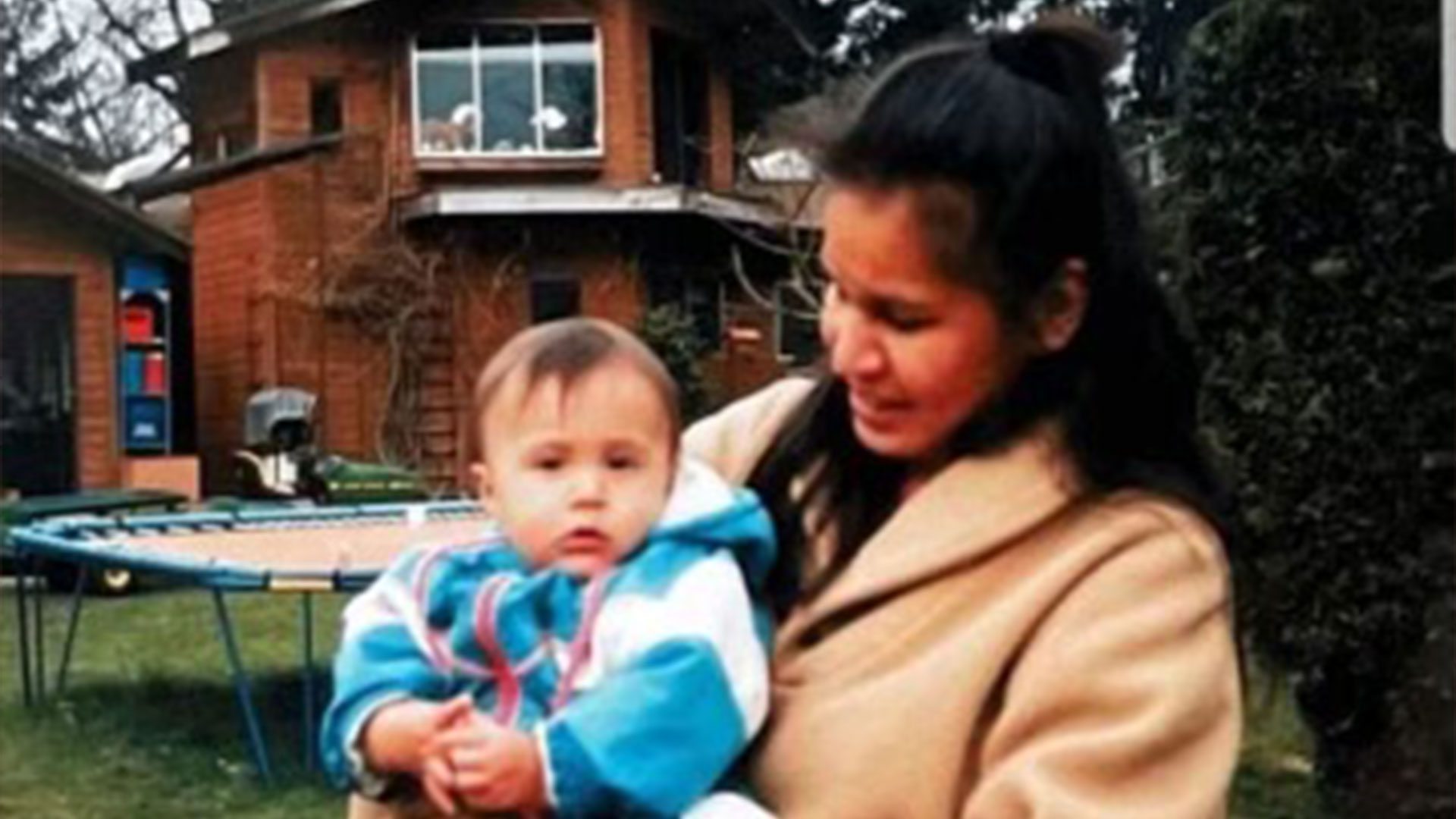
He says it was the prophetic words of a youth camp counsellor that ultimately helped him heal.
“In some weird way, I kind of forgave (Pickton) for what he did because I knew that I would sit there for the rest of my life, destroying myself,” he says. “I hear stories from other people, where they want to rip off his fingernails and do exactly what he did. And that’s kind of almost thinking the same as him.
“I knew it would destroy my life and I didn’t want to end up in, perhaps, the same situation if alcohol and drugs had taken me there.”
Honouring his mom
Casey remembers a nightmare he and his older sister shared about a field of bodies with his mom’s hand reaching up.
“I did feel, I guess, guilty at some point that there wasn’t anything I could have done to have brought her out of that place. That’s why I felt the pull to get involved with Camp Marcedes.”
Camp Marcedes – on the grounds of the Canadian Museum for Human Rights in downtown Winnipeg – was named in honour of Marcedes Myran, one of four women murdered by Skibicki in 2022. Casey spent 100 days volunteering at the site, where he says he did everything from maintaining the sacred fire to preparing meals to educating visitors.
The camp, which the family closed last month, was established to pressure politicians into searching for the women’s remains in area landfills and educate the public about the issues contributing to MMIWG.
It’s where Casey developed a friendship with Marcedes’ sister, Jorden Myran, and eventually disclosed his family’s victimization by a serial killer.
“I didn’t tell anybody my story or why I was there for a very long time because I wanted them to know I was just there to help them and support them,” he says. “I think because I wasn’t able to do anything for my mom – because I was so young – that this was a way of honouring her as well.”
Read More:
Skibicki ‘would have done it again,’ says psychiatrist at self-confessed killer’s trial
Casey says he would have liked to help search the grounds of Pickton’s farm for his mother’s remains and wants to help with the recently announced landfill search for two of Skibicki’s victims.
Spending time at Camp Marcedes “was healing,” he notes. “There was something about having your bare feet to the ground there … I felt 100 per cent better as a person being there.”
Casey, his older sister and his aunt attended the Pickton trial for three months as the guests of B.C. Justice.
He said in the Vancouver courtroom Pickton sat behind bulletproof glass unlike Skibicki, who attended his trial from a prisoner’s box flanked by two Sheriff’s officers.
“I was just shocked that he was just out in the open and so close to us,” says Casey, who sat behind Marcedes’ grandmother to provide support. “I felt a little queasy the first day.”
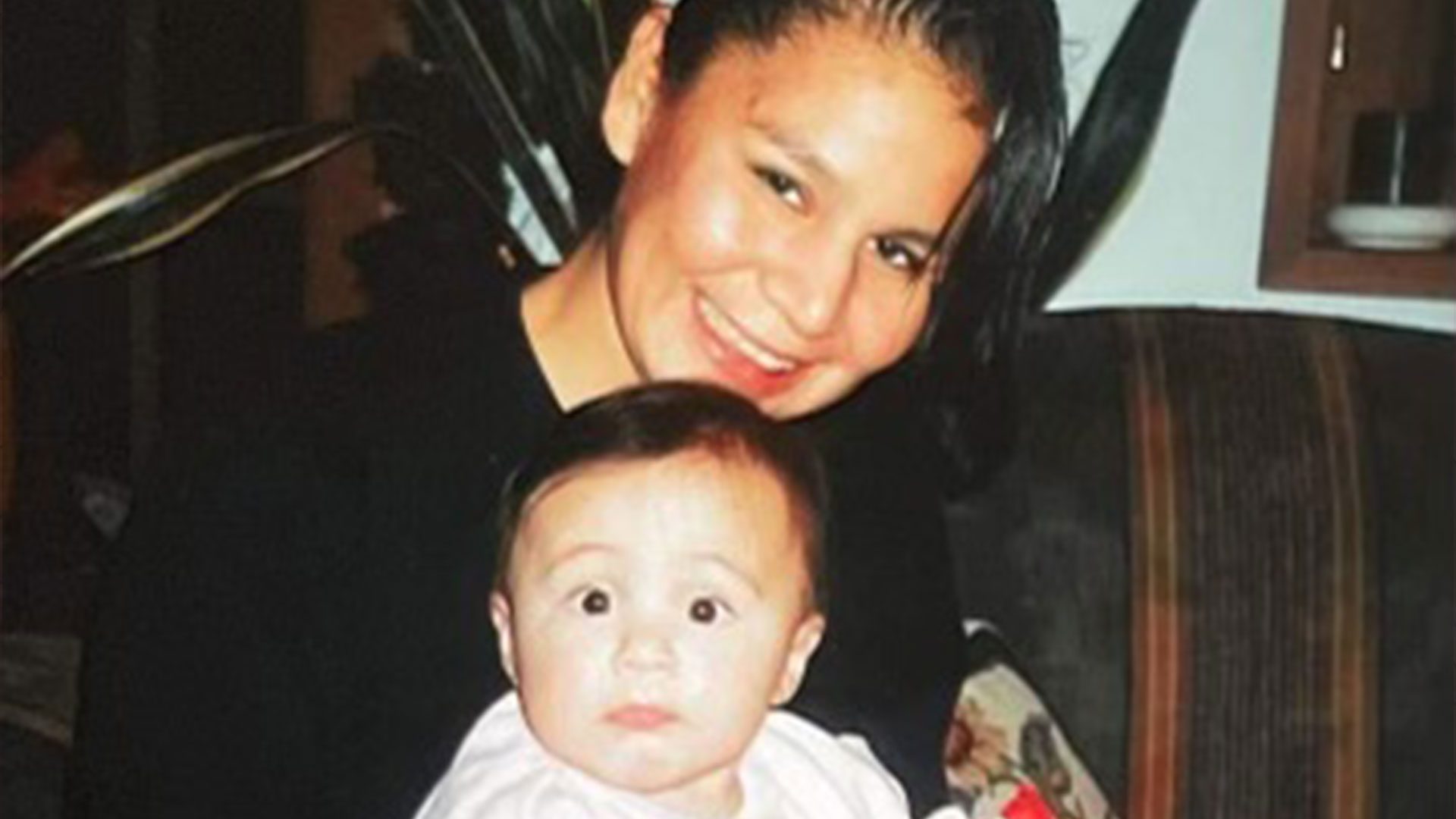
He advised the family not to look at the killer when he was escorted into and out of the courtroom.
“I said, ‘Keep space for yourself and your mental health’. We would sit behind them so we knew when their bodies were starting to shake and rub their back and make sure they got some water.”
Seeing a Sheriff’s officer serve Skibicki water in the courtroom upset Casey.
“He’s on trial for ending the lives of four Indigenous women who can no longer have a glass of water, but he can? He should have gone thirsty as well.”
Skibicki, 37, admitted to killing Myran, Morgan Harris, Rebecca Contois and a fourth yet-to-be identified victim known as Buffalo Woman, but his lawyers argue he should be found not criminally responsible due to mental illness.
Pickton, who was serving life in prison, died last month after being violently attacked by another inmate.
“With him getting murdered in prison that’s even more closure,” said Casey. “I was ecstatic.”
The Skibicki verdict is expected to be delivered July 11.
Support is available for anyone affected by these reports and the issue of missing and murdered Indigenous people. Immediate emotional assistance and crisis support are available 24 hours a day, seven days a week through a national hotline at 1-844-413-6649.




